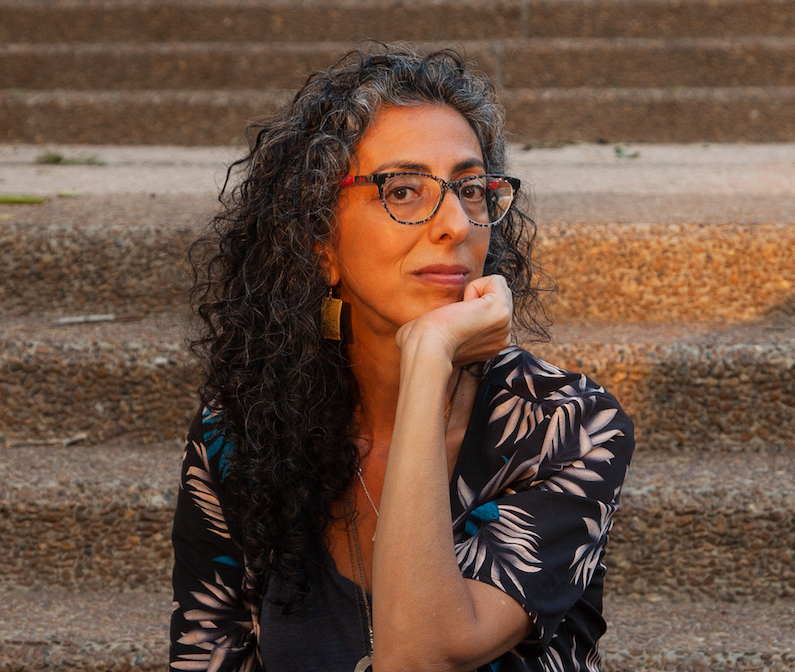Just around the founding of Israel, hundreds of thousands of Middle Eastern Jews were forced out or pressured to leave their countries of birth; one of these was Yemen. These Mizrahi Jews have traditionally been treated as second-class citizens in Israel.
Ayelet Tsabari is an Israeli-Canadian writer of Yemeni descent and has won prestigious awards for each of the books she’s published. Her first, The Best Place on Earth—a story collection that came out in 2016—won the Sami Rohr Prize for Jewish Literature and was a New York Times Book Review Editors’ Choice, among others. Her debut novel, Songs for the Brokenhearted, now out in paperback, won the National Jewish Book Award for Fiction, the Association of Jewish Libraries Fiction Award, and a Globe and Mail Best Book of 2024, and is a touching story of a Yemeni Israeli family that alternates between 1950 and the mid-1990s during the Oslo Accords.

Tsabari is a remarkable storyteller and her complex characters illustrate an Israel more diverse than is often portrayed. Her novel centers around a PhD student named Zohara who was spending time on a beach in Thailand soon after her divorce in the US when she learns about her mother’s death in Israel. This part of the story alternates with an earlier time when Zohara’s parents meet in 1950 in an Israeli refugee camp after they each flee Yemen in the late 1940s.
When Zohara returns to Israel after her mother’s death, she finds cassette tapes of her mother’s Yemeni songs, songs in Arabic Zohara didn’t know about and doesn’t understand. She also learns more about the older brother she never met.
My brother, Rafael, disappeared from the immigrant camp in Rosh HaAyin a few months after my family landed in Israel in 1949. They told me he was an easygoing, good-natured and healthy baby. When they arrived in the camp, they were instructed to house all infants at a nursery. It was better for the babies, the nurses had said. The tents were unhygienic. At first the Yemeni mothers rebelled, sneaking in to steal their own babies back, until the camp tightened security.
One day Zohara’s mother Saida went to the nursery and saw that Rafael’s crib was empty. The caregivers in the nursery informed her that Rafael had fallen ill the night before and was transferred to a hospital in Tel Aviv. But when Saida traveled to the hospital to retrieve Rafael, she was informed he had died. Saida’s heart broke in a couple of ways: she mourned her young son but she also felt let down by Israel, a land that was supposed to be welcoming to all Jews. How could her healthy baby die so suddenly without explanation?
Zohara grows up feeling embarrassed by her mother and her superstitions, warning against the evil eye and jinns or praying for husbands for Zohara and her older sister Lizzie. It’s not until Zohara is pursuing a PhD at NYU and meets other Mizrahi friends that she starts to appreciate her Mizrahi background.
Years later, I’d realize this is what happens … when the shame from being made to feel “less than” weighs on you from childhood, unspoken, unnamed, there like gravity, like the air you breathe, when your culture is unrepresented or mocked when it is, your past erased, your history dismissed, left out of history books or being rewritten to match the desired narrative.
Back in Israel after Saida’s death, Zohara finds Yemeni Israeli singers who can help her decipher the meanings of her mother’s songs in the cassette tapes, while other characters like Zohara’s nephew Yoni add more texture to the political climate in Israel during the Oslo Accords.
For those familiar with the history, hopes for peace are crushed after Prime Minister Rabin is assassinated. But on a smaller scale, Zohara finds some semblance of peace when she can better understand the pain her mother suffered as a new immigrant, young mother, and citizen of a new country.


You must be logged in to post a comment.